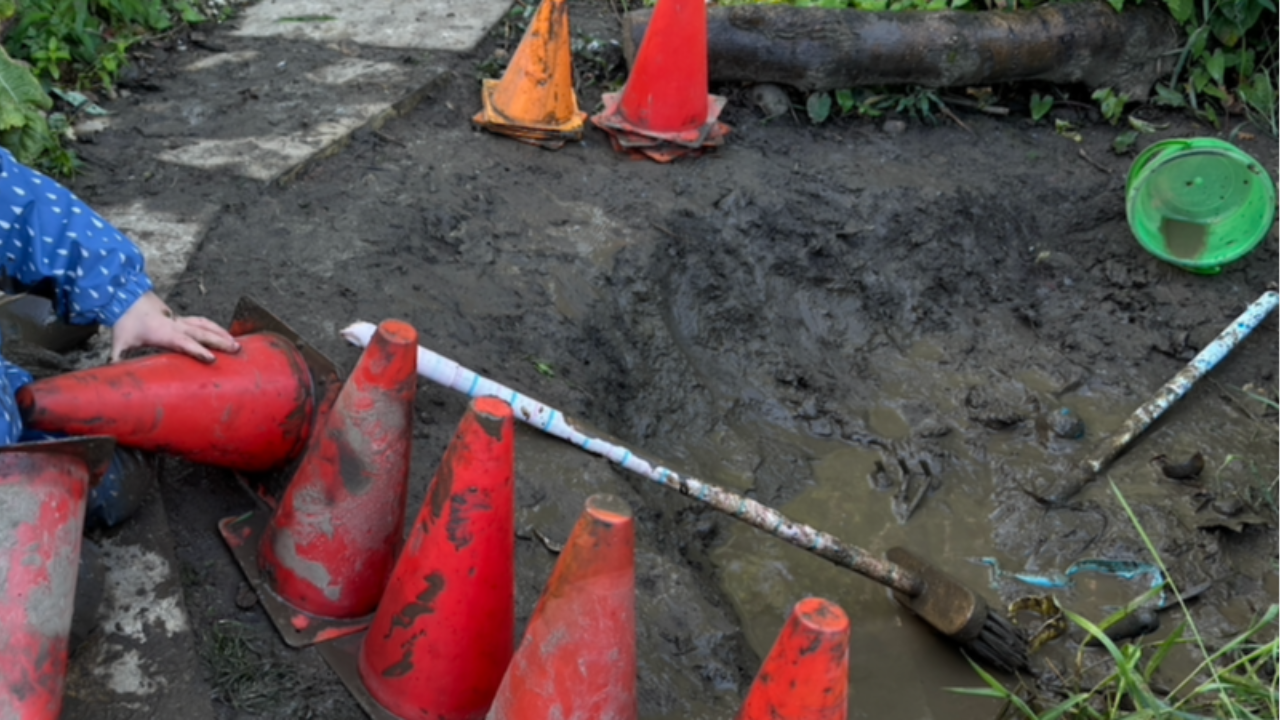Re-Imagining Childhood and Education 🌱

The other day, I watched my three-year-old at forest school, sitting in a water-filled hole, absolutely delighted with the sensory experience of mud and water.
And I paused.
I found myself wondering: What does his future look like?
How will the decisions we make as parents — about how he’s educated — allow him to keep following what lights him up?
How will education give him the freedom to pursue his own creative discoveries?
Are We Looking at Childhood All Wrong?
The education system we have today doesn’t always recognise, value, or appreciate the beautifully unique ways all brains see the world.
And yet, so many of the people who have shaped our world — Albert Einstein, Isaac Newton, Greta Thunberg — were not traditional learners. They thought differently. They were different.
So perhaps the problem isn’t with children at all.
Perhaps the problem is the way we view childhood.
Beyond “Success”
Instead of preparing children for work, shouldn’t we be preparing them to find joy?
To find passion?
To discover who they really are?
I’ve attended so many business courses over the years, and I always hear the same line:
“Find something you love, and you’ll never work a day in your life.”
But how do we find what we love, if we never had the chance to explore it in the first place?
Too often, we grow up equating success with climbing the career ladder and chasing the next achievement. Work becomes the end goal. But surely that isn’t what life is really about.
Dr. Rangan Chatterjee says: “When you’re driven to work too hard, you forget what matters.”
And what does matter?
Time together. Relationships. Mental health. Joy.
For me, that’s what I want most for my child. Not “success” defined by test scores or job titles — but a rich, calm, meaningful life.
What Children Really Need
Our children don’t need fixing.
They don’t need to be rushed, labelled, or drilled into “catching up.”
What they do need is:
-
Time
-
Play
-
Connection
-
An education that sees them for who they are, not just what they produce
Education in the Age of AI
With artificial intelligence now doing so much of the work for us, it’s time to ask: What is education really for?
AI can already draft, calculate, and produce at speeds we could never match. But here’s what it cannot do:
🌱 Wonder and curiosity — asking the big “what if?” questions
🎨 Creativity — imagination, artistic expression, divergent thinking
💞 Connection — empathy, relationships, understanding others
🧠 Critical thinking — questioning, evaluating, embracing nuance
🌍 Values and meaning — choosing what’s ethical, what matters
💡 Innovation born of play — experimenting, tinkering, learning from mistakes
If education keeps focusing on rote learning, testing, and conformity, we’re preparing children for jobs machines already do better.
Instead, our role as parents and educators is to nurture the human qualities that AI cannot replace: joy, creativity, empathy, imagination, ethics, storytelling, wisdom.
The future won’t belong to those who can outperform machines.
It will belong to those who can do what machines never will.
A Call to Re-Imagine
So what if we spent childhood simply letting children be children?
Maybe it’s not the children who need to change.
Maybe it’s the way we teach. 🌱
We must move beyond adult agendas — the “school readiness” checklists, the booster classes, the panic over summer regression.
Because the reality is sobering:
📊 5–6% of preschoolers already have diagnosable mental health needs.
📊 78% of educators report work-related stress.
Something has to shift.
The Invitation
I return to that image of my son, sitting in the mud at forest school. Free. Joyful. Alive in his discovery.
What if that became the foundation of how we see childhood?
Because if we want different outcomes, we can’t keep doing what we’ve always done.
It’s time to re-imagine.
🌿 If this vision of childhood resonates with you… if you’re ready to slow down, re-imagine education, and create spaces where children can truly thrive — then I’d love to invite you to join my Hygge in the Early Years Training.
This training is designed for educators and parents who want to move beyond tick-box teaching and nurture joy, play, and connection at the heart of learning. Together, we’ll explore how to:
✨ Create calmer, more nurturing environments
✨ Support children’s wellbeing through presence and connection
✨ Rebalance your own energy as an educator
✨ Embrace nature, creativity, and slow teaching practices
Because our children don’t need more pressure. They need us — grounded, present, and intentional — guiding them with love.
👉 Click here to find out more and join the Hygge in the Early Years Training
Have you tried my FREE Introduction to Hygge Training yet?




